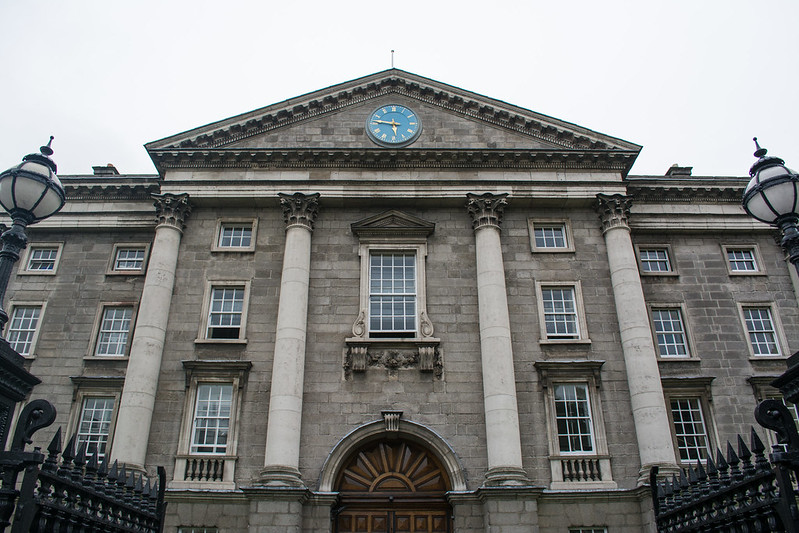We, the undersigned, write as Fellows, Fellows emeriti, non-Fellow academic staff, support staff, and Scholars of Trinity College Dublin to express our opposition to the Government’s proposed change to the College’s governance structure. The current Board of Trinity is composed of elected representatives of a broad range of constituencies from across the College as well as of external members. Such a composition is a great strength as it allows decisions to be taken which are sensitive to the needs of the whole community: currently students, academic staff, support staff and administrative staff all have a voice in the central governance structure. Whilst managerialism has eroded the traditional liberal ethos of the third-level sector over the last two decades, establishing a culture inimical to academic excellence and freedom, the Board has upheld its democratic functions primarily through the free and open election of its membership. It should not be the latest casualty of a shift towards an increasingly top-down undemocratic governance structure. The defence of Trinity’s broad-spectrum based and elected Board is not grounded in some nostalgic myth but in the proven strength of such a democratic composition. The current proposal involves a radical reduction in the size of the Board, allied to the imposition of ministerial nominees and a drastic reduction of staff and student representation: this is not about fine-tuning or ‘co-regulation’, but the imposition of old- fashioned bureaucratic control and the reframing of the membership of the Board as a more narrowly-based body with much greater ministerial control. This is profoundly destructive of university autonomy and ignores a multitude of research showing that autonomous universities in the USA, UK and Europe consistently perform best in terms of research, teaching and service to the wider community. The Department’s proposals are detrimental to academic values, threaten the removal of independent voices from the Board and undermine the principle of autonomy enshrined in the Universities Act. It is also the managerialist and corporate culture within third-level education which must change, not the Board. We would encourage all who oppose this proposal to voice their opposition to the Minister for Higher Education by 5 March, the deadline for submissions.
Signed,
Giuliana Adamo, FTCD
Sarah Alyn Stacey, FTCD
Greg Atkins, FTCD (emeritus)
Sean Barrett, FTCD (emeritus), Pro-Chancellor (emeritus)
Marco Bellardi
Louis Brennan, FTCD
Ruth Britto, FTCD
Kevin Byrne
Martin Caffrey, FTCD
Nick Campbell, FTCD (emeritus)
Norah Campbell, FTCD
William Coffey, FTCD (emeritus)
Ciaran Cosgrove, FTCD (emeritus)
Paul Coughlan, FTCD
Sean Davitt, FTCD (emeritus)
Eileen Drew, FTCD (emeritus)
Richard Duckworth
Sean Duffy, FTCD
Frederick Falkiner, FTCD (emeritus)
Sergey Frolov, FTCD
Patricia González Bermúdez
David Grouse
William Harrison, FTCD (emeritus)
Martin Hegner, FTCD
Matthew Hennessy, FTCD (emeritus)
Paul Horan
Stefan Hutzler, FTCD
Maureen Junker-Kenny, FTCD
John Kelly, FTCD (emeritus)
Niall Kennedy
David Limond
Roger Little, FTCD (emeritus)
William Lyons, FTCD (emeritus)
Eoin Mac Cárthaigh, FTCD
James Mason, FTCD (emeritus)
Eoin O’Dell, FTCD
Paul O’Grady, FTCD
Eunan O’Halpin, FTCD (emeritus)
Tatiana Perova, FTCD (emeritus)
Jeremy Piggott
Jean-Paul Pittion, FTCD (emeritus)
Anthony Quinn, FTCD
Tom Rogers, FTCD
Clemens Ruthner
Paule Salerno-O’Shea
Florence Signorini
David Singleton, FTCD (emeritus)
Stefan Sint, FTCD
Aljosa Smolic, FTCD
Andrew Somerville, FTCD
Andrew Torrance, FTCD (emeritus)
Jȕrgen Uhlich
Jagdish Vij, FTCD (emeritus)
Carl Vogel, FTCD
John Walsh
Denis Weaire, FTCD (emeritus)
Martin Worthington
Dmitri Zaitsev, FTCD
Hongzhou Zhang, FTCD
Scholars’ Committee on behalf of the Scholars







